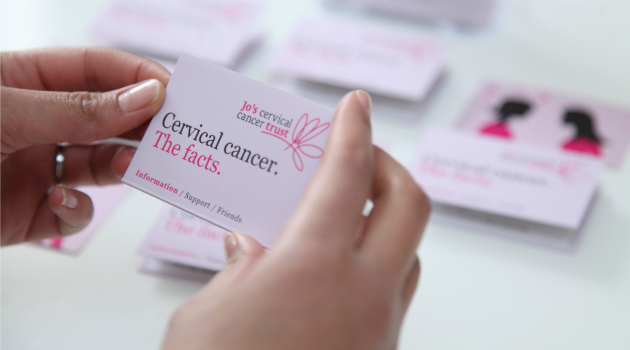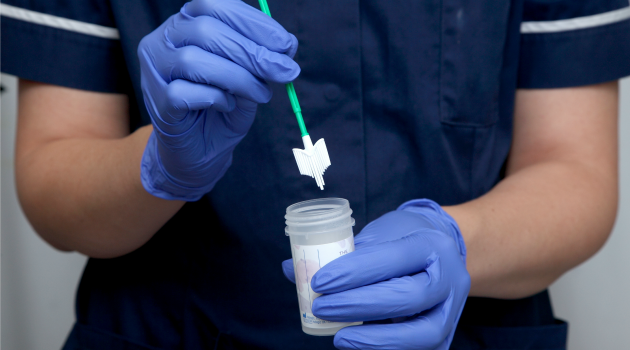Anger management!!! Help needed.

Cervical cancer over 50 - diagnosis and symptoms

Even though cervical cancer is the most common cancer in women aged 35 and under, you are still at risk over 50. It's easy to ignore symptoms, and an alarming number of women in the UK don't attend regular cervical screening. Here are 10 things you should know about cervical cancer over the age of 50 and why it's important to get yourself checked regularly.
Get the latest in health directly to your inbox...
1. Diagnosis
Every year in the UK, over 3,000 women will be diagnosed with cervical cancer and 220,000 with cervical abnormalities. Whilst diagnoses and deaths from cervical cancer have declined overall since the 1970s by around 75%, missed or postponed screenings continue to lead to unnecessary and preventable cases of cervical cancer.
Over a third of cervical cancer diagnoses in England are in women over 50, and in the UK between 2012-2014, 47% of deaths from cervical cancer were females over 65. Since older females constitute a disproportionately high mortality rate, it's hugely important that women aged 50 plus continue to get checked.
2. Screening
The most effective method of preventing cervical cancer has been through regular cervical screening (smear tests), which allow detection of any early changes of the cervix, and, if any, cancerous or pre cancerous cells.
Now this is switching to HPV primary screening (which is already happening in England and Wales. It will begin in Scotland in March, and follow in Northern Ireland at a date to be confirmed). The appointment will remain exactly the same, but the sample of cervical cells is tested first for a virus called high-risk HPV. If you have high-risk HPV, the same sample would then be looked at for cervical cell changes. High-risk HPV causes 99.7% of cervical cancers, so this is a more effective test that allows doctors to identify people at higher risk of developing cervical cell changes and cervical cancer.
Cervical cancer is largely preventable and, if caught early, survival rates are high.
3. Frequency
Over 50 you will be invited for a screening every five years and under 50 it’s every three years. It's worth remembering that an abnormal screening result rarely means cancer. For women aged over 65, only those who haven't been screened since they were 50, or have had recent abnormal tests, are offered screenings.

4. Human papillomavirus (HPV)
In 99.7% of cases, cervical cancer is caused by persistent infection with a virus called Human papillomavirus (HPV). HPV is a very common virus transmitted through skin-to-skin contact of the genital area. Around four out of five people (80%) will be infected with HPV at some point in their lives and the body's immune system will usually clear it up.
5. Sexual activity
While HPV infection is most common in women between the ages of 16 and 25, if you are - or have ever been - sexually active at any age you are at risk of having HPV. That's because HPV can live in the body for many years - even decades - without us knowing about it. This is called 'dormancy' and while HPV is dormant, it may not be picked up by tests. However, HPV can become active again laterinlife, which means it may cause cervical cell changes. So even if you haven't been sexually active for a long time, or have only had one sexual partner, cervical screening is still important.
Sign up to our daily newsletter for the latest lifestyle and health advice...
6. Opting out
"I have always had clear screening results, should I opt out of the screening programme after 50?"
Making a decision about whether to attend cervical screening is always your choice. Evidence shows that the benefits of cervical screening outweigh any risks, and that the test offers the best protection against developing cervical cancer. If you choose to go, you will be invited for cervical screening up to age 64.

7. Over 65
If a woman aged 65 or over has had three negative screening results in a row, it is highly unlikely that she will go on to develop the disease. Women aged 65 and over who have never had a test are entitled to one.
8. Menopause
"Is cervical screening more painful after the menopause?"
After menopause, one of the side effects is that the vaginal walls and entrance can become smaller. Women may also make less natural lubrication and this can make the insertion of the speculum more uncomfortable. Oestrogen levels in the body also fall, which means the cells of the cervix do not shed as easily. This can sometimes produce an 'inadequate' cervical screening test result as not enough cells can be collected. If this happens, you may need to come back to repeat the cervical screening test. There are, however, ways to make screening easier post-menopause.
9. Symptoms
Cervical cancer does not always have symptoms, especially if it is early stage. There are some symptoms to look out for:
- Abnormal bleeding during or after sexual intercourse, or between periods
- Post menopausal bleeding, if you are not on HRT or have stopped it for six weeks
- Unusual and/or unpleasant vaginal discharge
- Discomfort or pain during sex
- Lower back pain
Remember that these symptoms are often caused by something other than cervical cancer. However, if you notice a change or are worried about something, including a symptom we don’t mention here, it is important to get it checked out by your GP.
10. Attending
Each year around five million women in the UK are called by their health care provider or the NHS for cervical screening yet one in four women do not attend. Cervical screening saves 5,000 lives a year in the UK and is free of charge.
Jo's Cervical Cancer Trust is a UK charity dedicated to supporting those affected by cervical cancer and raising awareness about ways to prevent it. For more information about HPV and cervical screening, including helpful tips for your test, please visit their website at www.jostrust.org.uk. Jo’s offers a range of information and support, both online and over the phone, as well as face-to-face support events throughout the year.
Images: Shutterstock


